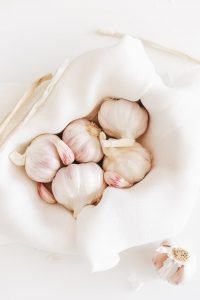Spices 101: A blog on how to season any dish with the best ingredients and spices.
I have always been a fan of putting spices in my food. Even when I was a young girl, I would ask my mom to put some pepper in my mashed potatoes. To me, there is nothing better than a well-seasoned dish. Food has to be prepared right, and that means adding the right herbs and spices to your dishes.
Sometimes you can get away with simply sprinkling on some salt and pepper, but there are so many other ingredients out there that you can use to make your food taste even better!
Spices 101 is a blog about all things spices and seasonings. Here you will find information about the different spices from around the world and how they are used in traditional dishes. You will also learn about how these flavors can be used in everyday cooking at home.
Spices 101: A blog on how to season any dish with the best ingredients and spices.
How to Use Salt Like a Chef (Part 1)
The New York Times recently ran an article called “A Guide to Salting Like a Chef” by Sam Sifton, and as a big salt proponent, it’s always good to see such positive press for the stuff that makes life worth living.
It’s also tremendously frustrating because of the large number of incorrect statements made in the article. I think Mr. Sifton must have been confused about how sodium chloride works, and, because he’s a journalist who is not actually required to know anything about his subject matter, he just wrote whatever sounded good. I would like to set the record straight.
Why use spices?
– Spices can be used to make any dish taste better.
– Spices have medicinal properties.
– Spices are an affordable and fun way to experiment with cooking.
What spices should I have in my pantry?
– Salt (kosher, sea salt, table salt)
– Pepper (black peppercorns, white peppercorns, ground pepper)
– Alliums (onion, garlic, shallots)
Spices 101: A blog on how to season any dish with the best ingredients and spices.
Hello everyone and welcome to Spices 101. I’m your host, Chef Bob.
This week we’re learning about spices. What is a spice? Well, it’s any seasoning that can be added to food to enhance the flavor.
There are four main types of spices: herbs, hot spices, allspice, and flavoring salts. We’ll begin with herbs.
Seasoning is an art. But, unfortunately, there are many people who do not know the first thing about seasoning food. Well, that’s why I’m here to help! My name is Chef E. I’ve been in the culinary industry for over 20 years and I’m going to teach you all the secrets of spices.
Now, let’s start with the basics: what makes up a spice? Spices are made of herbs and a variety of plant roots and seeds. A good rule of thumb in cooking is to use fresh herbs whenever possible, but if you don’t have them available dried herbs will do. Remember that dried herbs are much stronger than fresh ones!
The first thing to know about spices is that they are not the same as herbs. Herbs usually come from the leafy part of a plant, while spices are made from other parts, like seeds, berries, bark, roots and fruits.
Next, know that spices can be bought whole or ground. Whole spices stay fresh longer and retain more of their flavor, but they require more preparation. If you’re cooking a dish that requires a spice for just a few minutes (like stir-frying), it’s fine to buy it pre-ground, but for anything that simmers for a while—think soups and stews—you’ll get more flavor by using the whole spice. To grind whole spices at home, use a mortar and pestle or an electric grinder dedicated to grinding spices; coffee grinders can give your spices an off taste if you’ve previously used them for coffee beans.
If you’re an avid cook who uses many different spices frequently, it’s best to buy them in small quantities (1/4 cup or less) every few months at a specialty store with high turnover (Indian and Asian markets often have great spice selections). But if you don’t cook with spices often, you may want to consider buying the small bottles found in
The most important thing for a chef is to season their food.
The first step is understanding the principles of seasoning and why we do it.
We season meat before cooking because salt helps break down muscle fibers and tenderize the meat. We season cooked meat because it adds flavor and brings out the natural umami of the food.
We season vegetables before cooking because it draws moisture out, which then gets reabsorbed when we cook the veggies, giving them a better texture. We season after cooking for the same reason we season meat – to add flavor.
But what I really want to talk about here is spices. Spices can be intimidating because they have a reputation for being exotic and unfamiliar, but they’re really just dried up plants! And once you understand some basic principles, using them becomes easy, fun, and exciting!
